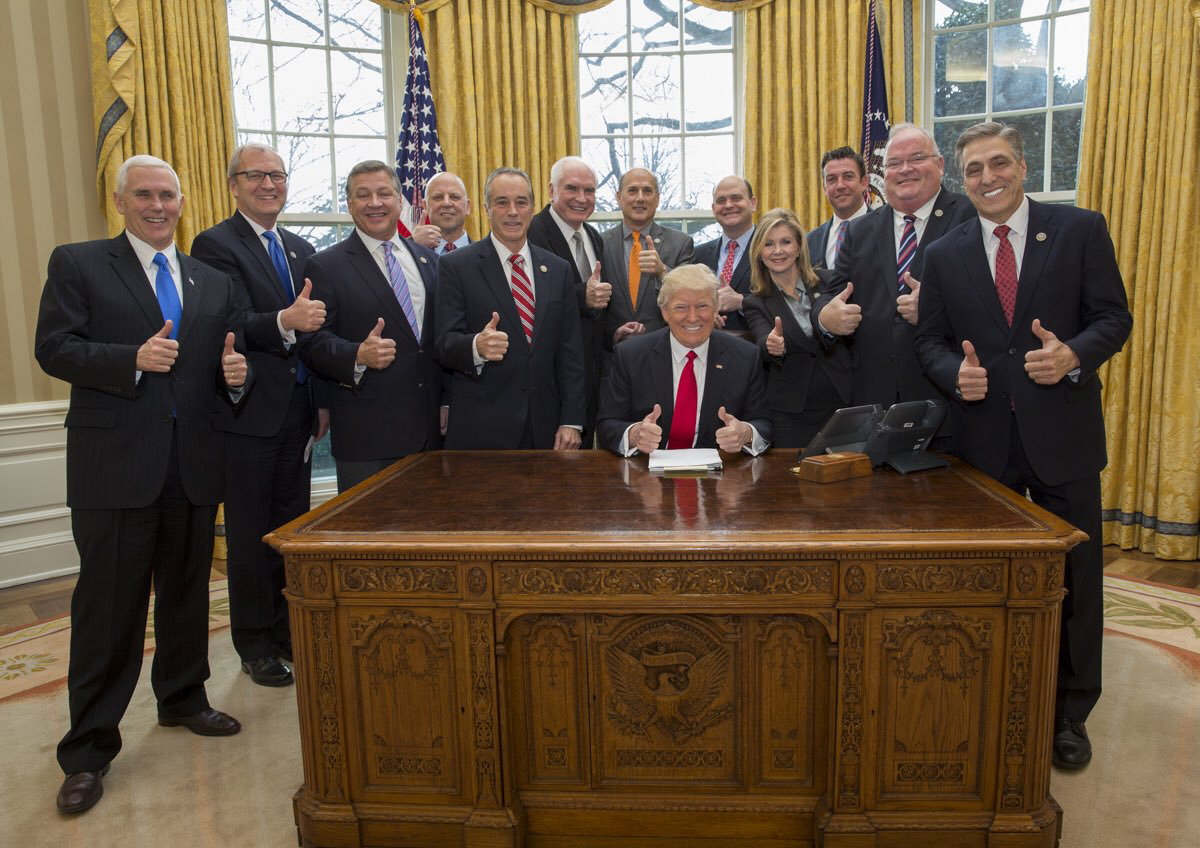Topic #1: What does the Trump Factor mean for congressional candidates in the midterms? Donald Trump may not be running for anything this November, but he might as well be. The president is a drag on his party, and Democrats can press the advantage by labeling incumbent Republicans as spineless or Yes Men too afraid of losing power if they don’t do what Trump says.
Topic #2: Where is public opinion moving on big issues like the Special Counsel investigation, family separation, and taxes? Tracking data suggests stories about Paul Manafort’s trial, the Helsinki summit, and Trump’s Twitter blow-ups may be increasing Americans’ support for the Special Counsel investigation to continue. Public opinion about the Trump Administration family separation policy remains overwhelmingly negative, while the Republican tax plan may be fading from view.
1 | The Midterm Trump Factor
With just over 80 days to go until Election Day and primary season wrapping up, candidates across the country are turning their sights on the general election campaign. This year’s midterm election will be the first since Donald Trump took office. While his name won’t be on the ballot, history and polling both suggest the president will be on the minds of many of the voters in the ballot box, with his upside-down approval ratings (39% approve and 57% disapprove in this survey) dragging down candidates across the country.
The remaining questions are: where do Democrats make the biggest gains by linking candidates to Trump – and how do they make that case?
As of now, Democrats have a lead of 8 points (45% to 37%) on a generic congressional ballot among likely voters. But the Democratic lead is wider (+12) when it is explicitly framed as a choice between a generic Democrat who will provide a “check and balance on Trump” and a Republican who will “help Trump pass his policies and programs.”
The Democratic lead is roughly the same (+13) – and also wider than the initial generic congressional ballot – when the framing is a Democrat who simply “opposes Trump” versus a Republican who will “support Trump”.
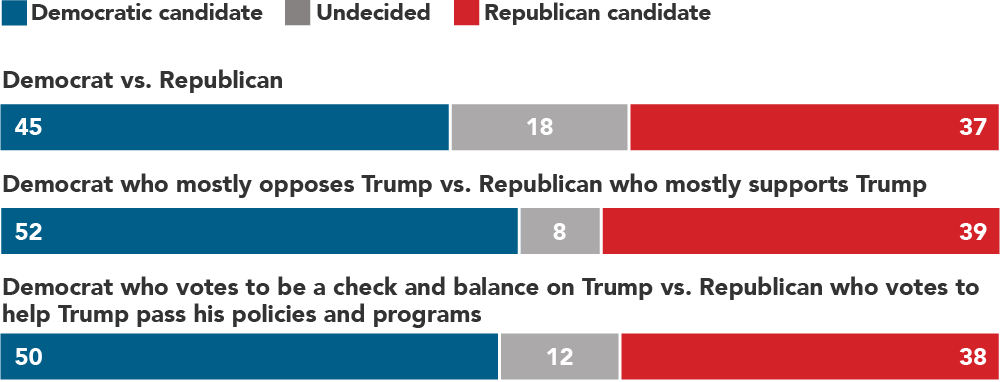
But there are differences in how key groups of voters react to each framing for the race, and “check and balance” is the better framing for avoiding backlash among those who are generally more supportive of Trump.
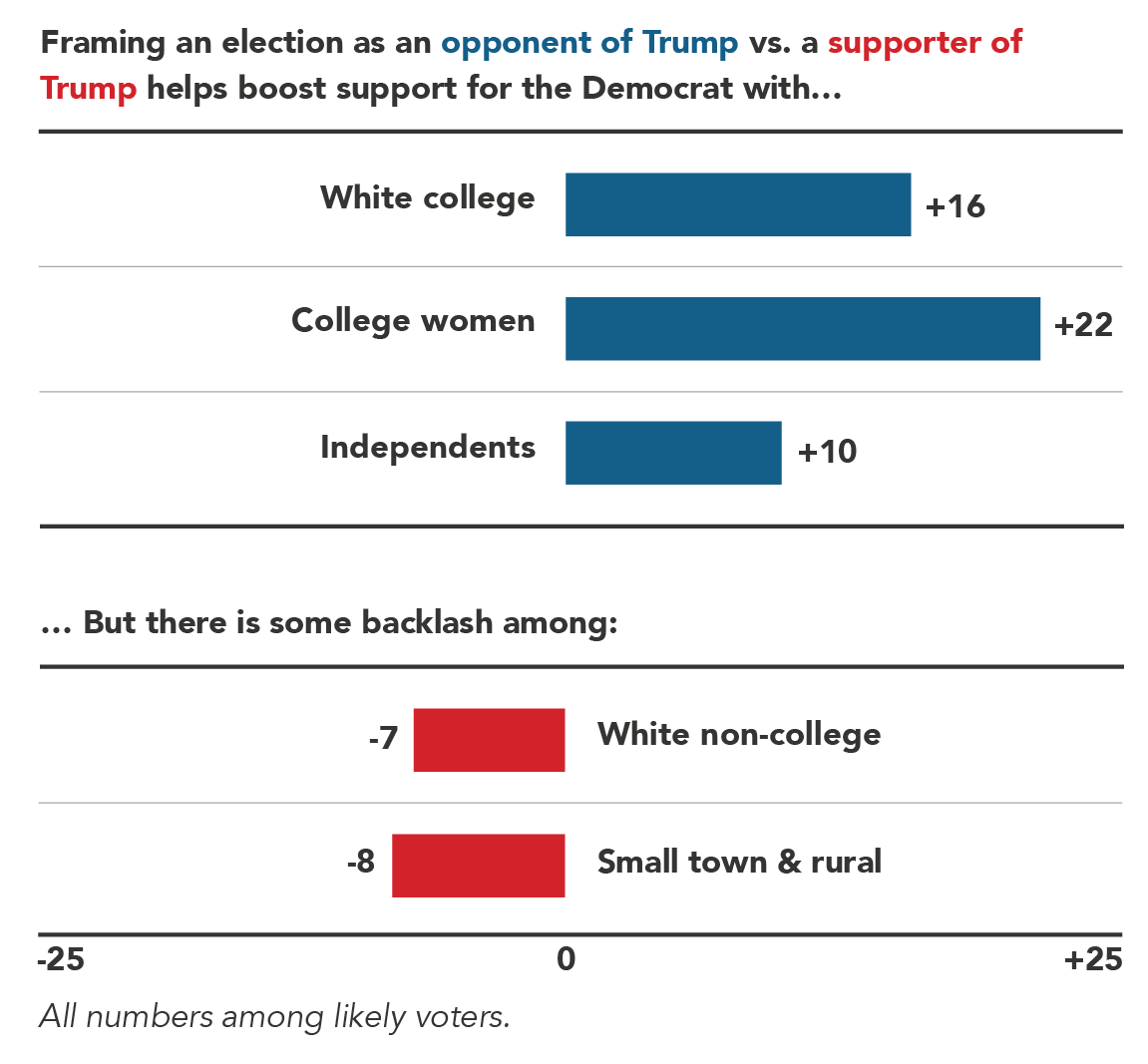
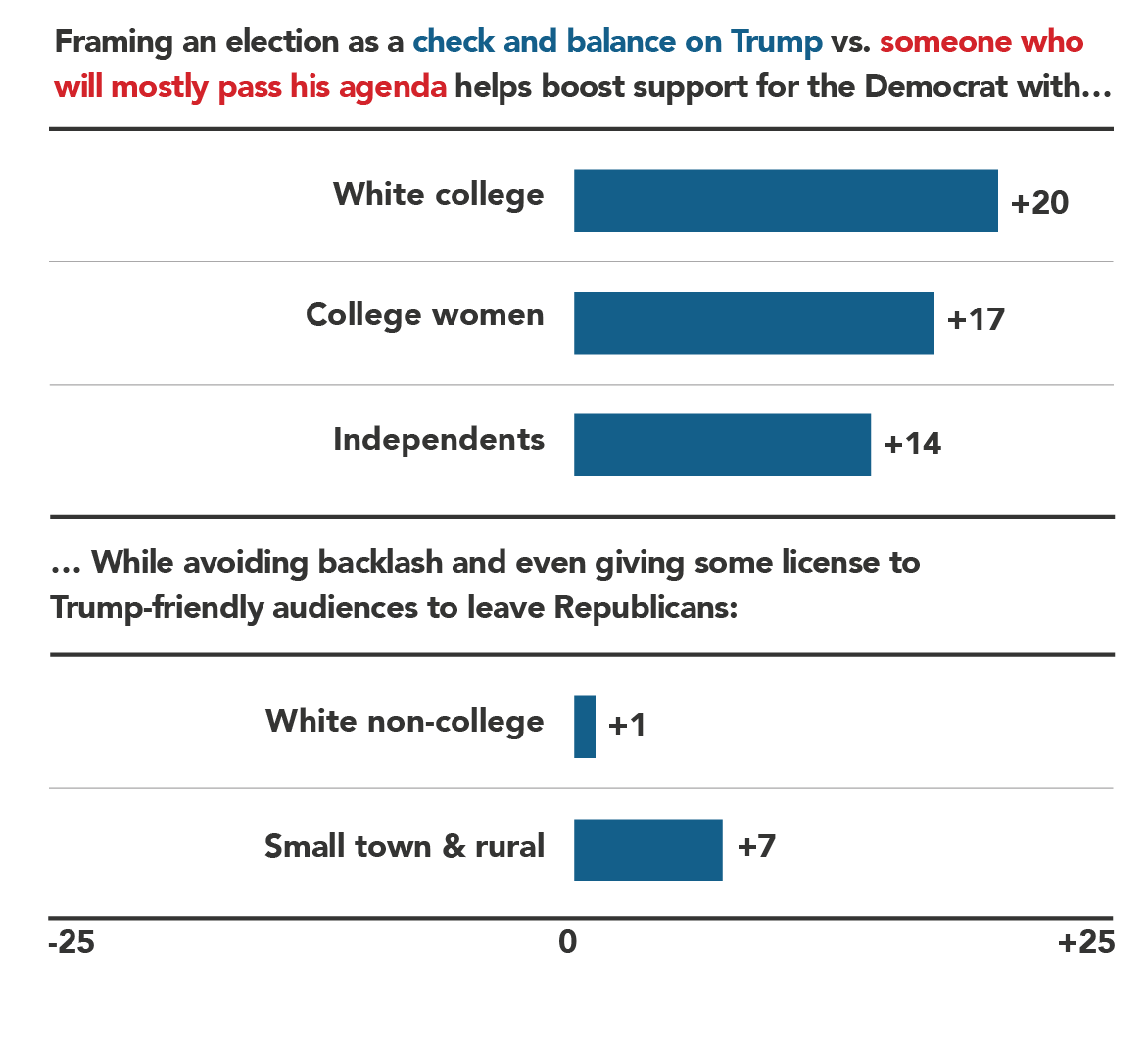
Voters believe elected Republicans should show more independence. But what’s the best way to talk about it?
All told, 67% say at least a few Republicans are “too close to Trump.” Yet there are many options for describing this relationship – rubber stamps, copycats, Yes Men – and they do not all resonate in the same way.
What do voters believe is motivating Republicans on Trump? A deal with the devil.
Voters don’t think every Republican agrees with Trump or is just like him. Voters think Republicans voting with Trump “95% of the time” are simply making a political calculation. The top three reasons identified by independents were all similar – that Republican members want to keep power in Congress, that they are afraid Trump will turn on them, and that they’re Yes Men who are doing what they’re told.
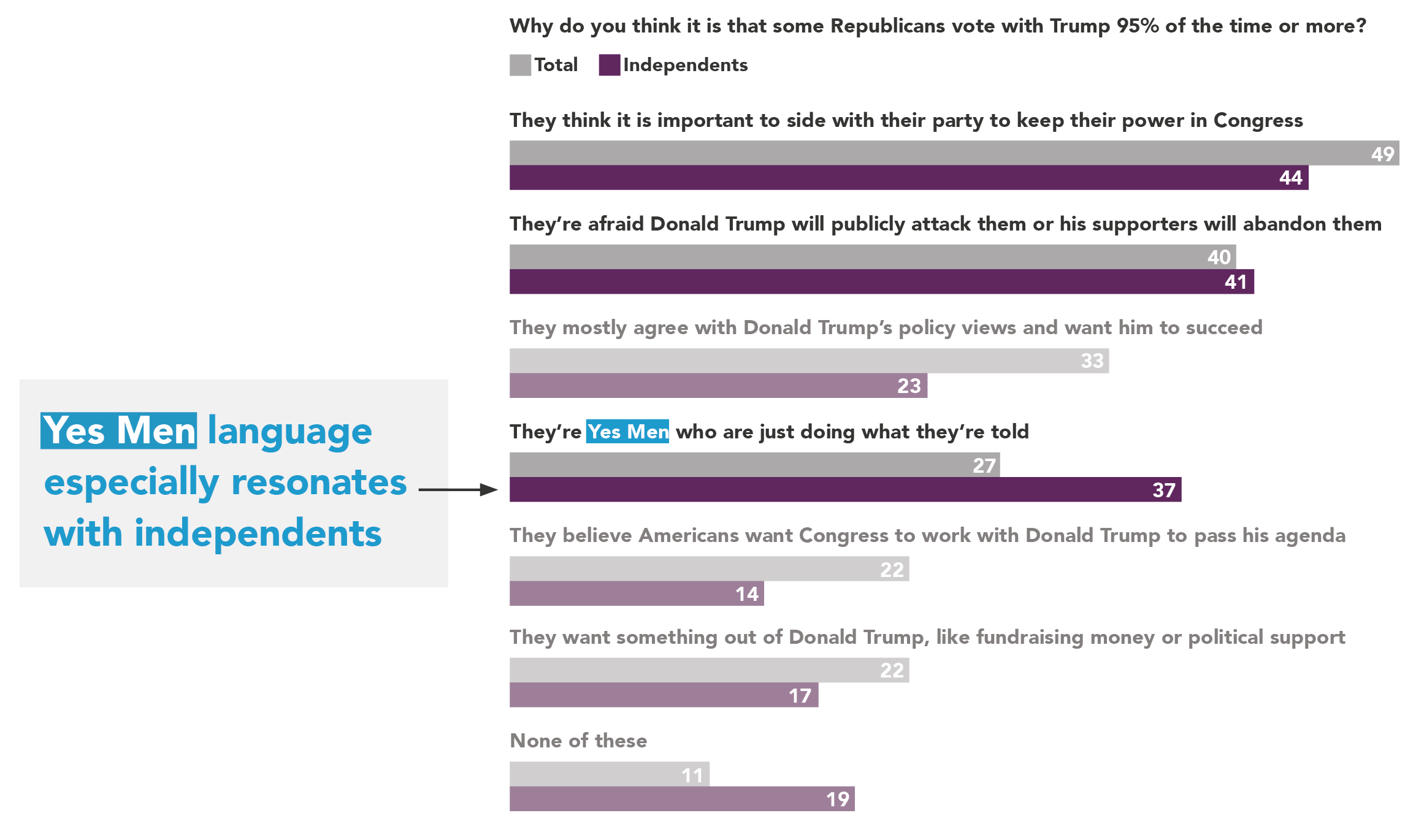
What they are doing: showing no backbone, putting party over country, and acting like Yes Men.
When communicating to persuadable voters about the “95 Percent”-ers, don’t say these Republican elected officials are a “rubber stamp” for Trump, or that they are trying to copy him. Also avoid language that may sound too much like a partisan attack (“complicit” does well with Democrats – but not with independents or Republicans).
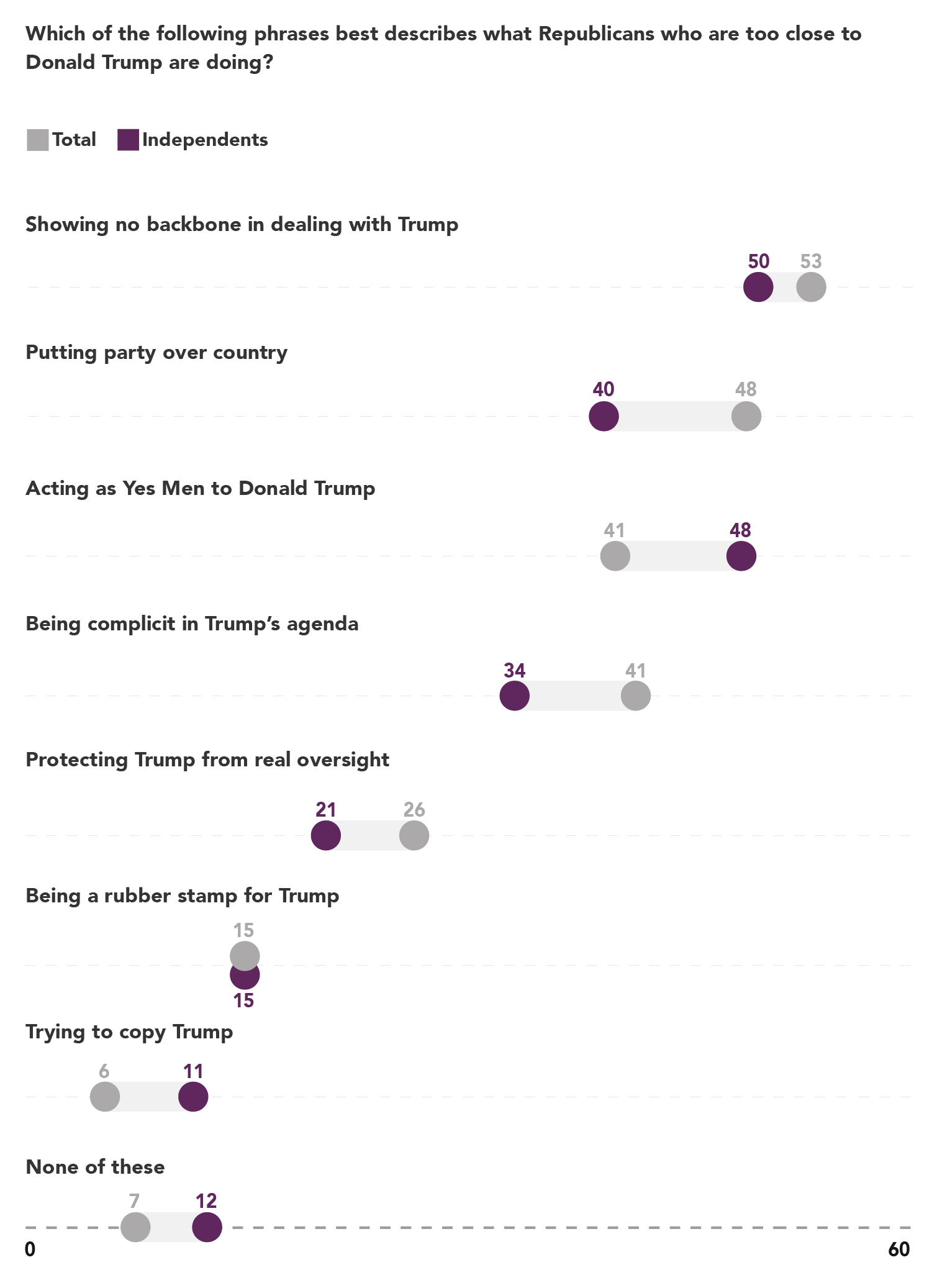
What they are:
Spineless “Yes Men.”
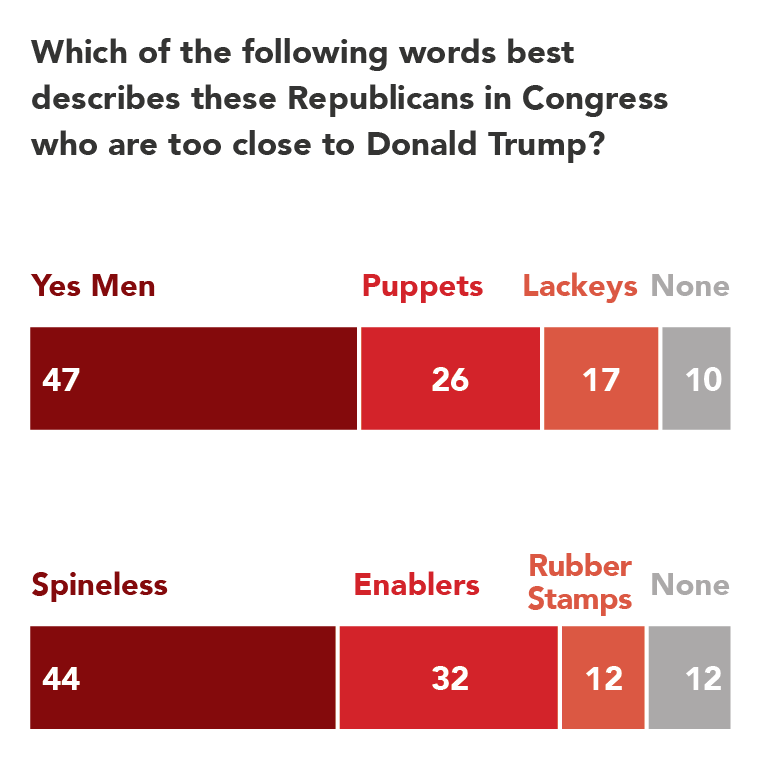
Show, don’t just tell. While every race is different, there are clear examples of how the current Republican-led Congress has failed to show real independence from the president. These examples can remind voters of what it means to have a Congress full of spineless Yes Men.
Lack of oversight, lack of accountability, lack of independence – all effective proof points to demonstrate lack of backbone or show just how often they say “Yes”.
All other things being equal, independent voters say they would be “less likely” to vote for a member of Congress who…
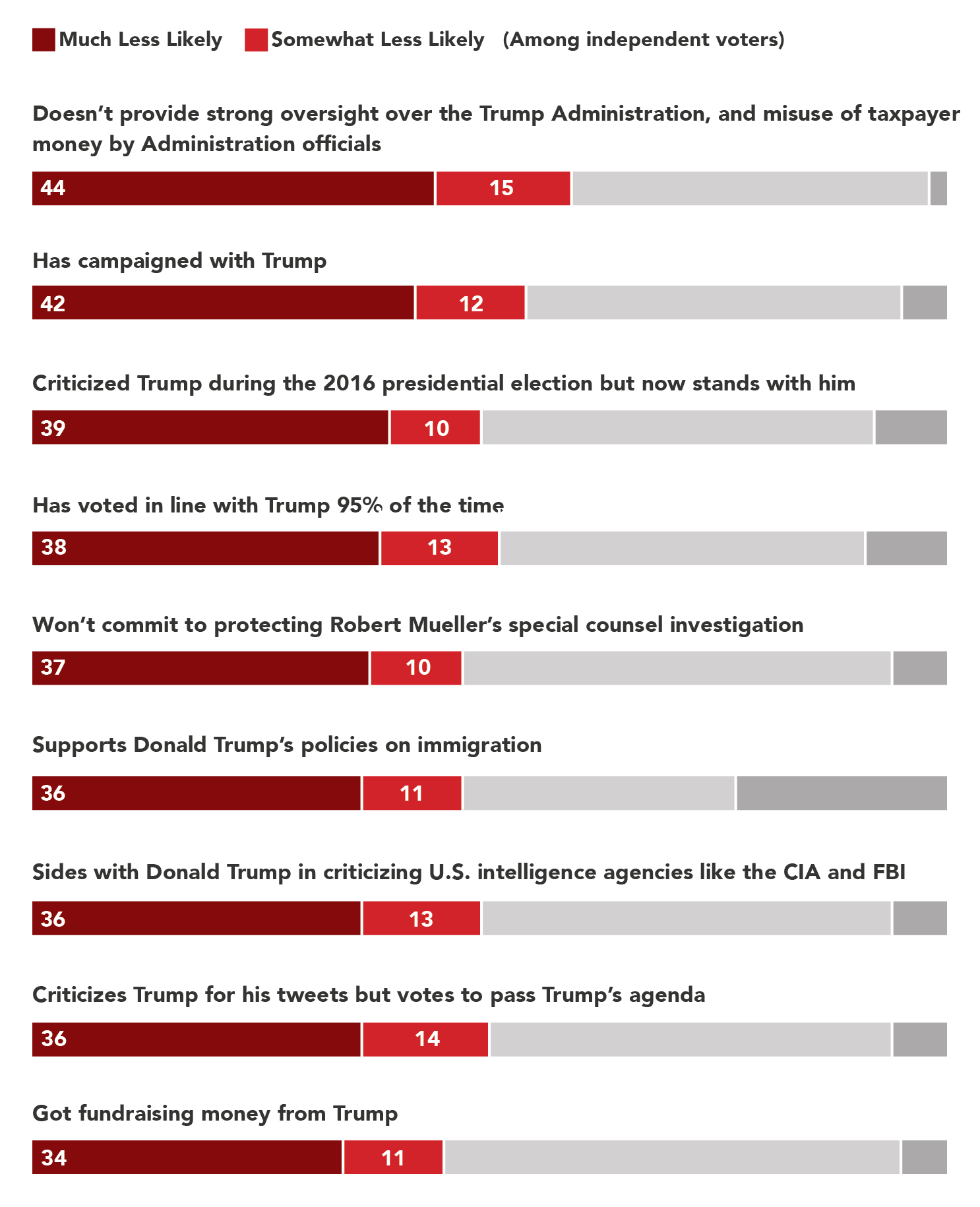
2 | Shifting Political Landscape
Support for continuing the investigation is stronger than ever. Navigator Research has tracked support for the ongoing investigation into Donald Trump’s 2016 presidential campaign since May. Support for keeping it going has been steady for months, but rose this month – after Paul Manafort’s trial began and after Trump held his now-infamous Helsinki press conference with Vladimir Putin. Voters now support keeping the investigation going by 26 points (57-31%) compared to 14 points in July and June. Support for shutting it down has fallen off by 8 points; meanwhile, the share who say the investigation has uncovered crimes has ticked up to 46%, from 41% in May.
The key movers on the special counsel investigation are Republicans, with whom net opposition has fallen significantly, from +60 to +33.
Net support (% support minus % oppose) for continuing the investigation
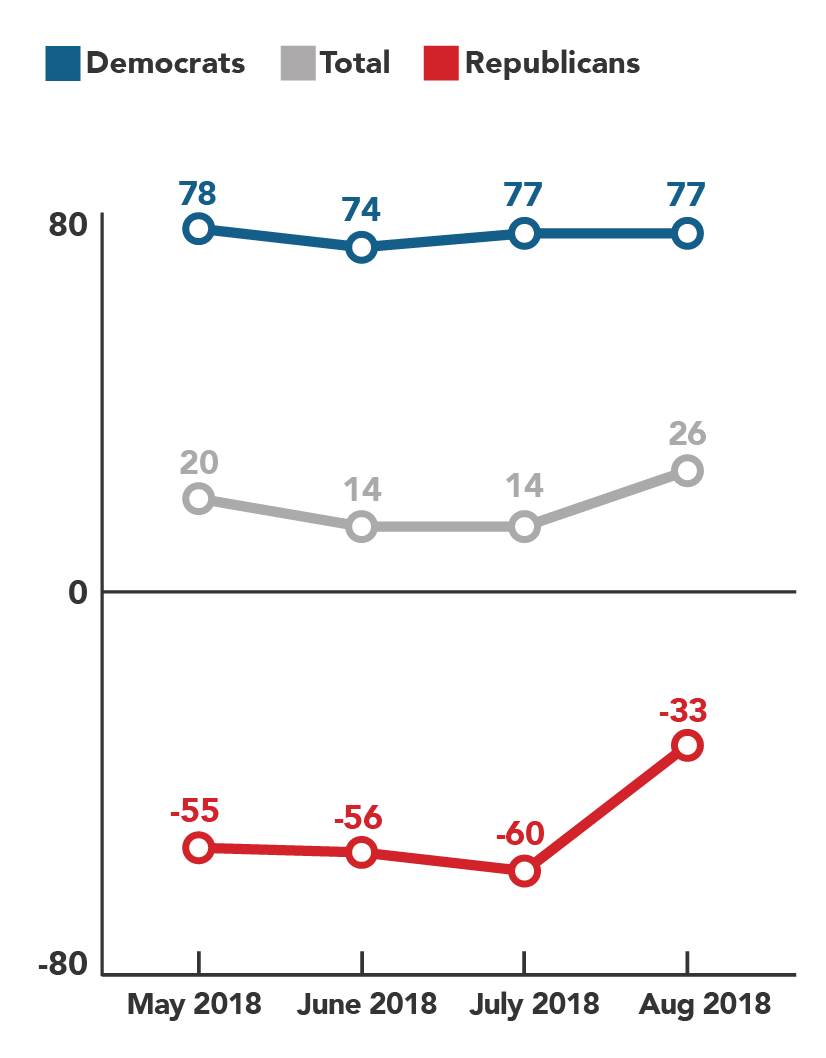
To the best of your knowledge, has the investigation uncovered any crimes?
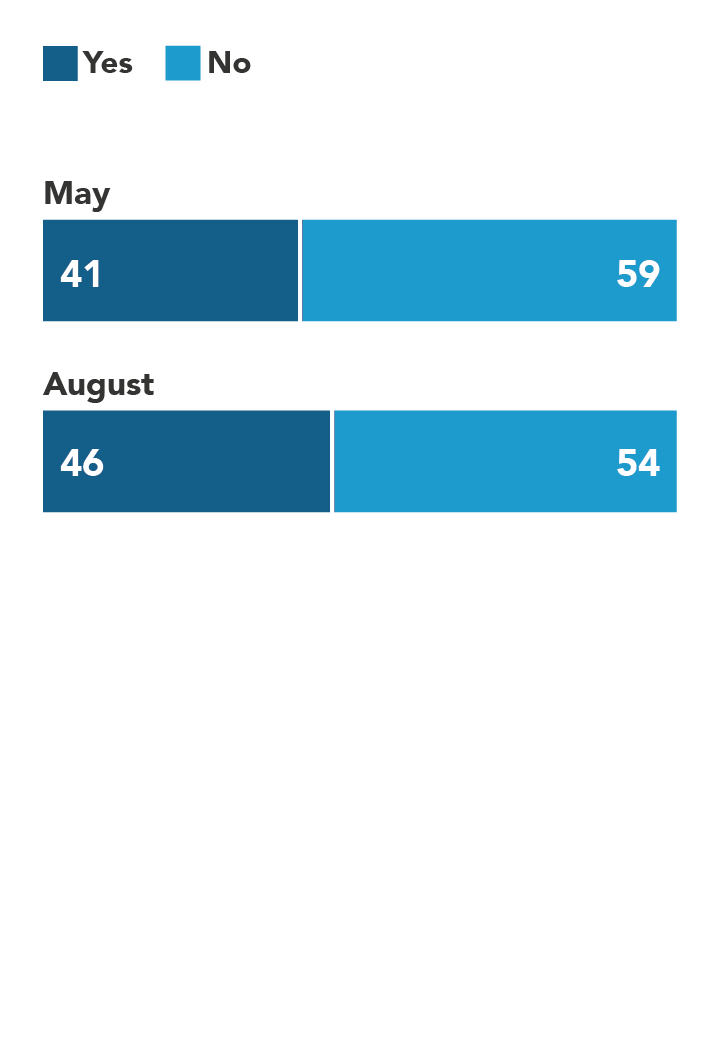
Paul Manafort and Michael Cohen have become better known – and more notorious.
The characters from Trump’s orbit that have become associated with or directly implicated in the Special Counsel investigation inspire almost zero sympathy, even among groups of voters who generally approve of Trump.
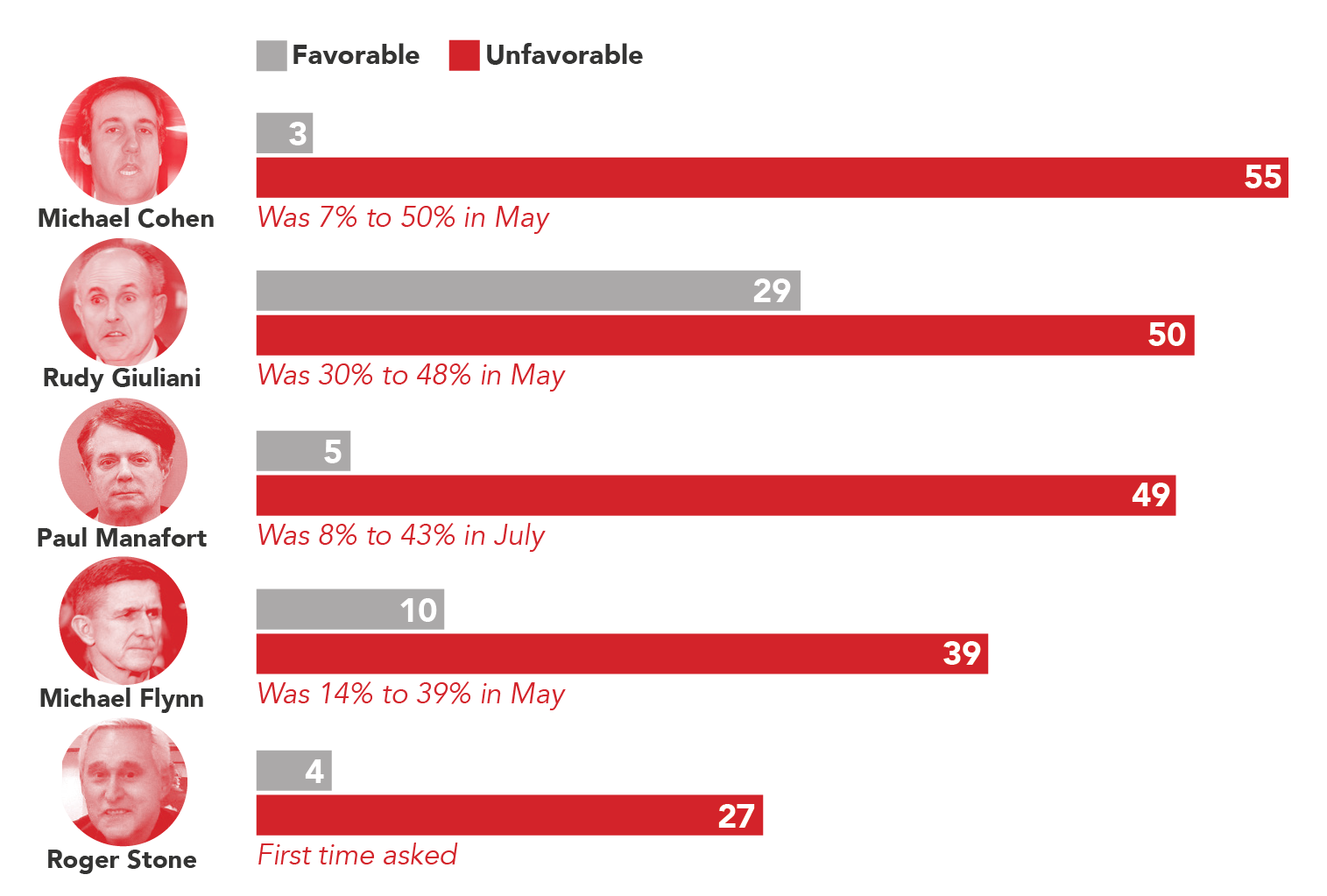
The tax plan is fading from view.
Republicans in Congress are hoping to cash in politically on their one major legislative accomplishment this November, but voters don’t appear to be buying it: support for the bill is fading with the share of undecideds rising 14 points over the past four months. This gives progressives more space to continue defining the issue to win the tax fight. The share who say they “don’t know” if the tax bill increases or decreases their own taxes has also gone up nearly 10 points since June.
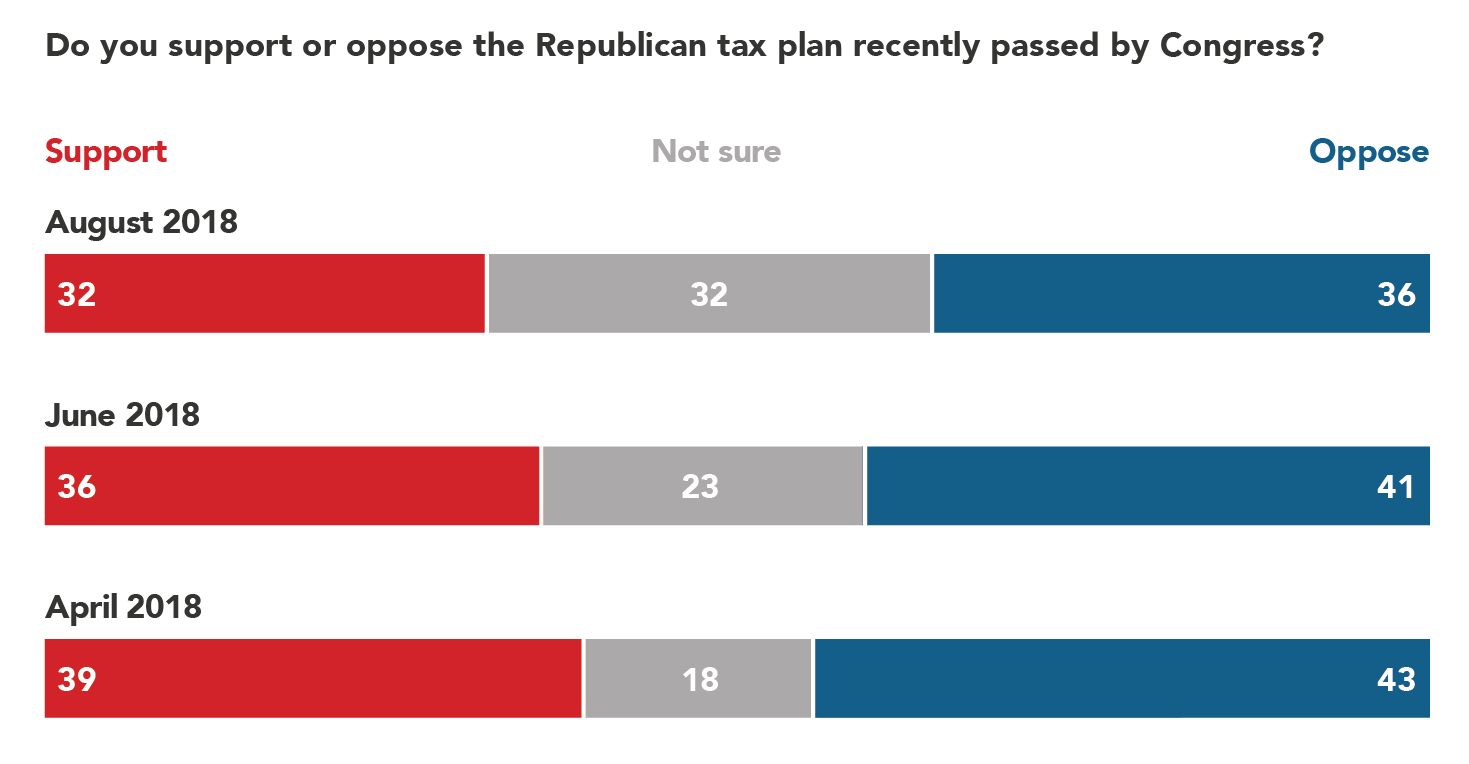
Family separation remains salient.
As the Trump Administration struggles
to reconnect parents with the children
that were taken away due to the fam-
ily separation policy, opposition to that particular policy remains overwhelming (69% oppose, including 54% who strongly oppose).
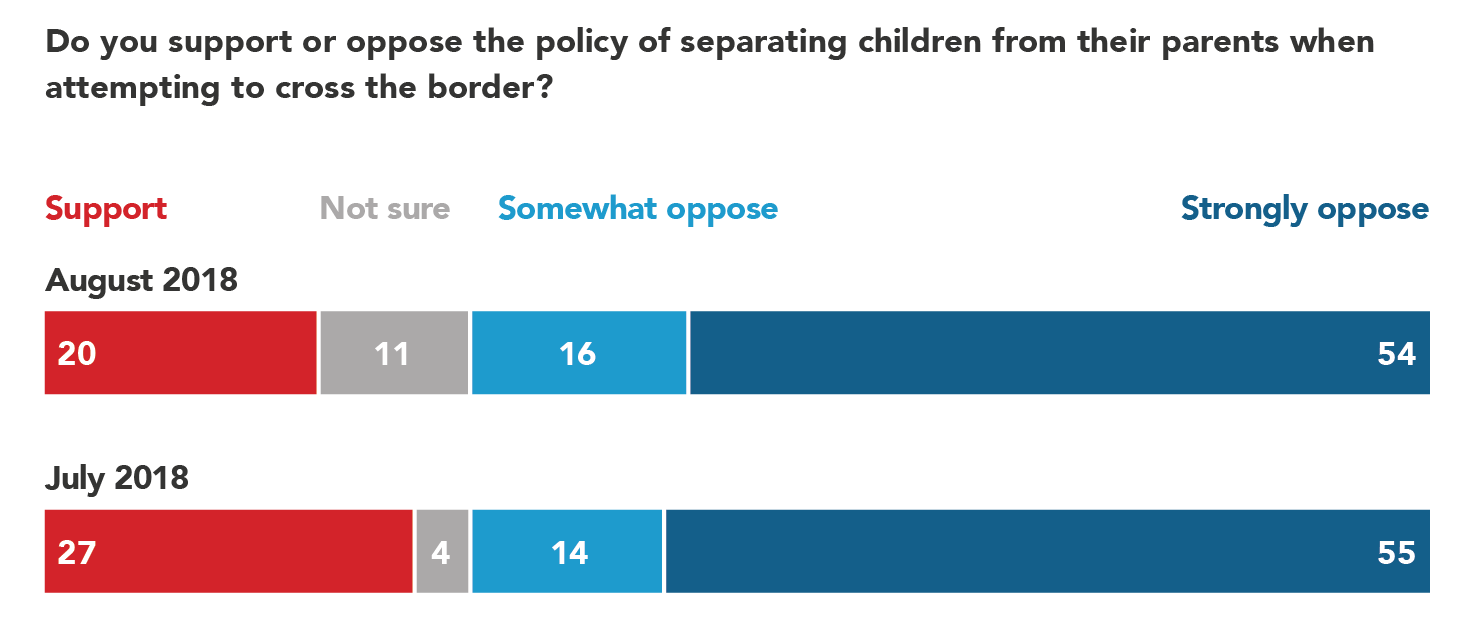
Bonus Points
SCOTUS Opinion
- Brett Kavanaugh, Donald Trump’s nominee to replace retiring Supreme Court Justice Anthony Kennedy, has underwater personal ratings, with just 15% favorable, 28% unfavorable, and 57% unable to give an opinion.
- While Republicans are more favorable than unfavorable toward Kavanaugh (by 36% to 8%), views are negative on net among Democrats (2% favorable, 44% unfavorable) and independents (5% to 29%).
Dictator Envy
- When forced to choose between a statement claiming Donald Trump “ultimately respects the checks and balances of our system of government” and one claiming that he “thinks of himself as a dictator, not a president,” the latter argument wins, by a substantial 59% to 41% margin, including by 2:1 (67% to 33%) among independents.
Putin Pressure on Trump Approval
- Among Republicans, Donald Trump’s overall approval rating is 84% approve to 14% disapprove. However, and in the wake of the Helsinki summit, his job approval is much lower when it comes to how he is handling “U.S. relations with Russia and Russian President Vladimir Putin” – just 67% approve, and 22% disapprove with his own party.
- This makes the Russia issue one potential wedge between Trump and his usual base. The same is true for whites without a college degree, who approve overall by 52% to 44%, but disapprove, on balance, when it comes to Russia (38% approve, 42% disapprove).
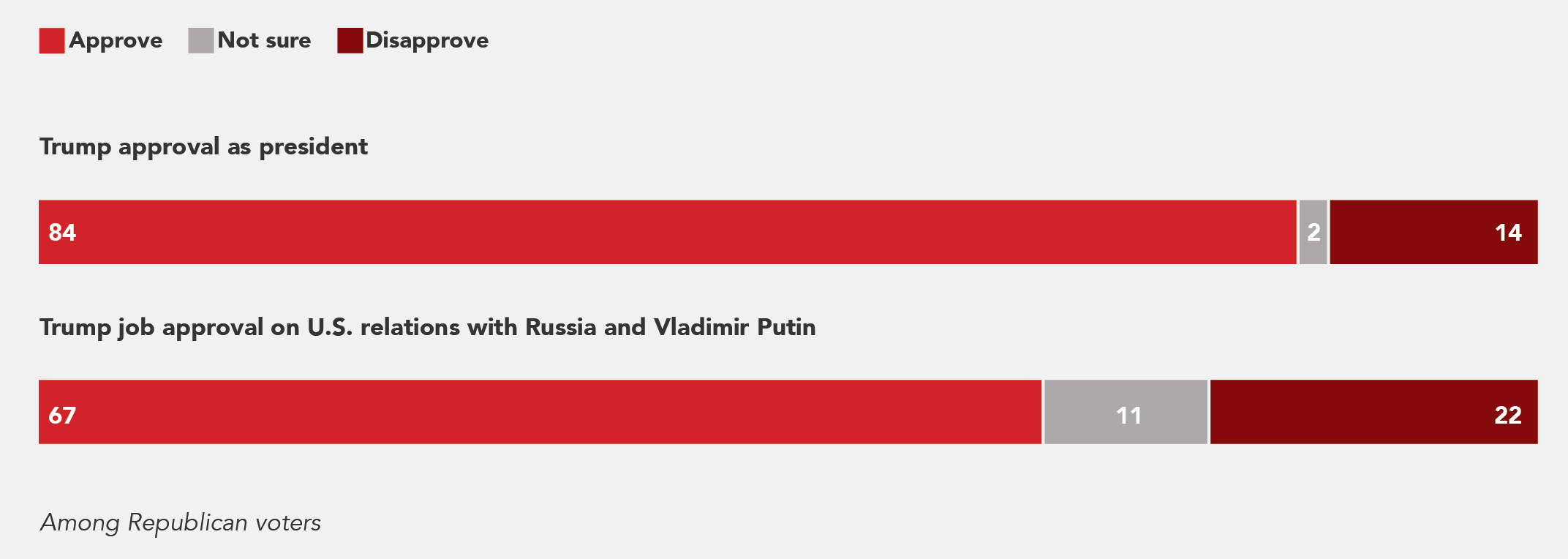
About The Study
Global Strategy Group conducted a public opinion survey among a base sample of 1,028 registered voters, along with 100 additional interviews among independents with no partisan lean, between August 2-5, 2018. The survey was conducted online recruiting respondents from multiple opt-in online panel vendors. Respondents were verified against a voter file and special care was taken to ensure that the demographic composition of our sample matched that of national registered voter population across a variety of demographic variables.
